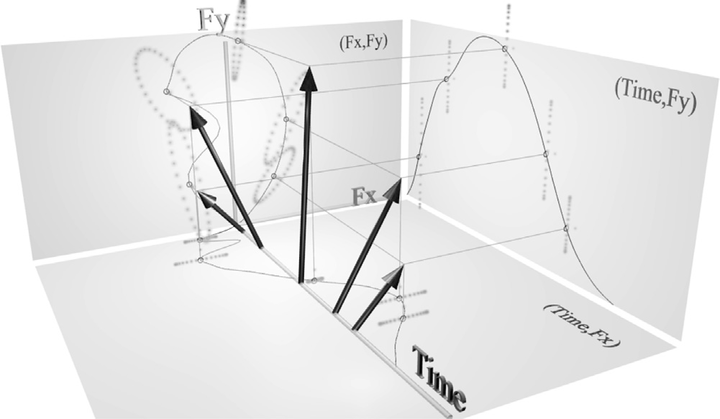
Abstract
When investigating the dynamics of three-dimensional multi-body biomechanical systems it is often difficult to derive spatiotemporally directed predictions regarding experimentally induced effects. A paradigm of ‘nondirected’ hypothesis testing has emerged in the literature as a result. Non-directed analyses typically consist of ad hoc scalar extraction, an approach which substantially simplifies the original, highly multivariate datasets (many time points, many vector components). This paper describes a commensurately multivariate method as an alternative to scalar extraction. The method, called ‘statistical parametric mapping’ (SPM), uses random field theory to objectively identify field regions which co-vary significantly with the experimental design. We compared SPM to scalar extraction by re-analyzing three publicly available datasets: 3D knee kinematics, a tenmuscle force system, and 3D ground reaction forces. Scalar extraction was found to bias the analyses of all three datasets by failing to consider sufficient portions of the dataset, and/or by failing to consider covariance amongst vector components. SPM overcame both problems by conducting hypothesis testing at the (massively multivariate) vector trajectory level, with random field corrections simultaneously accounting for temporal correlation and vector covariance. While SPM has been widely demonstrated to be effective for analyzing 3D scalar fields, the current results are the first to demonstrate its effectiveness for 1D vector field analysis. It was concluded that SPM offers a generalized, statistically comprehensive solution to scalar extraction’s oversimplification of vector trajectories, thereby making it useful for objectively guiding analyses of complex biomechanical systems.